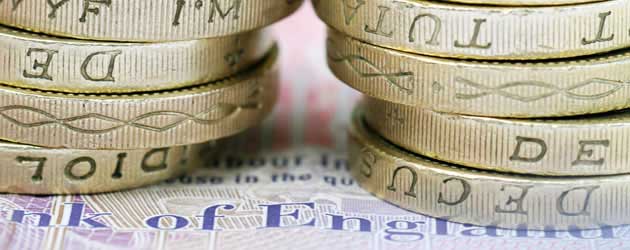
The Pound to Euro exchange rate (GBP/EUR) shrunk by around -0.35 cents to 1.1725 yesterday afternoon as markets reacted to the news that Deputy Head of the centre-left Democratic Party Enrico Letta is to become the next Prime Minister of Italy. The formation of a government in the Eurozone’s third largest economy, after two months of political gridlock, was interpreted positively for the 17-nation bloc because it means that the embattled Southern European member state can finally push forward with important reforms.
Enrico Letta is 46 years old – the second youngest European PM, after David Cameron – and his opening speech sought to bring a freshness to proceedings; he said that Italy’s current political class “has lost all credibility”, and urged Italian politicians to continue with Mario Monti’s austerity drive, but also to concentrate on pro-growth measures:
“European policies are too focused on austerity which is no longer enough”.
Amid a roster of characters that wouldn’t find themselves out of place in an Italian Tragedy – bunga-bunga Berlusconi, former comic Beppe Grillo, and previously-serene-but-now-resigned Pier Luigi Bersani – Letta’s remarks appeared measured: sufficiently pragmatic in order to convince financial markets, but with just enough oomph to satisfy domestic Eurosceptics.
“We don’t have to have significant things to satisfy markets. It’s enough to just not erase the things that Monti did” said Fabrizio Fiorini of Aletti Gestielle SGR SpA.
Letta was chosen by newly re-elected Italian President Giorgio Napolitano to lead a grand coalition between the centre-left Democratic Party and the centre-right People of Freedom Party. Due to the deep-running political differences between the two parties, it is unlikely that the new PM will have an easy task implementing strategic reforms; if tensions run too high then there is still a relatively strong possibility that a fresh set of elections will be held. This runs the risk of further uncertainty in the future and explains why the single currency was restricted to mild gains against the Pound in response to the positive development.
German data failed to impress yesterday, with the important Business Climate IFO index falling from 106.7 to 104.4 in April. The downbeat data fuelled ECB rate cut speculation and damaged the Euro against Sterling as GBP/EUR grew by 0.3 cents. Andreas Scheuerle of Dekabank said:
“The mood within companies has slipped noticeably, the euphoria from the beginning of the year has gone. It is mostly due to developments in Europe: the political stalemate in Italy, then the bungled Cyprus rescue and then news that parts of the Portuguese savings package were unconstitutional.”
With the Eurozone’s biggest economy beginning to feel the impact of the drop-off in demand from Southern Europe it is more important than ever that Italy brings its house back into order.
The direction of the Pound to Euro exchange rate is likely to be dictated by this morning’s first quarter UK GDP report. Estimates suggest that Britain avoided sliding into a symbolically catastrophic triple-dip recession during the first three months of 2013 by the smallest of margins. A meagre 0.1% UK GDP growth is predicted, and this could be enough to set GBP/EUR on its way towards 1.1900. Conversely, a disappointing growth figure could lead to significant losses for Sterling.

Comments are closed.